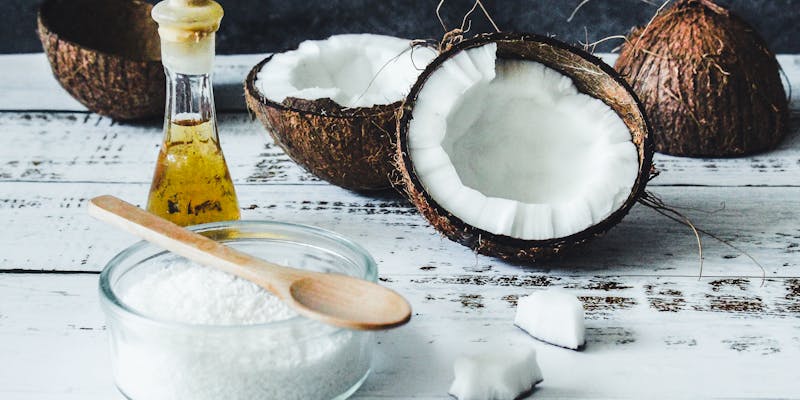Although sunflower and canola oils contain nutritional components, the Centers for Disease Control and Prevention (CDC) has not designated one oil as the more healthful alternative. On the contrary, vegan canola oil is suggested as the ideal culinary oil.
Fat is needed for many body functions, so being fat-deficient is unhealthy. Maintaining a balanced diet with fat helps the body absorb vitamins and obtain energy. However, this high-calorie diet must be carefully followed. According to the CDC, canola, sunflower, and olive oils are healthy.
Canola Oil

Produced from the seeds of the canola plant, organic canola oil is an extremely well-liked cooking oil renowned for its versatile nature and moderate flavor. "Canola" has meant "Canadian oil, low acid" since its inception in Canada. Several crucial phases comprise the oil extraction procedure to guarantee that the extracted oil is fit for human ingestion. Canola seeds are rinsed and then heated to facilitate the removal of the outer shell.
After the seeds' casings are extracted, they are reduced to a coarse powder. The meal is then pressed and boiled to extract the oil. Degumming is occasionally employed as a supplementary process to filtration to augment the extracted oil's quality. Extraction procedures for vegan canola oil are subject to rigorous regulations to preserve their nutritional value and ensure compliance with all industrial standards.
Nutritional Value
The nutritious significance of organic canola oil is gaining popularity. MUFAs outweigh saturated fats, which may enhance cholesterol and cardiovascular disease management. In addition to healthy fats, canned oil contains vitamin E, an antioxidant that fights oxidative stress. Vitamin Kessential for blood coagulationis found in trace amounts. Just one tablespoon of caviar oil has 120 calories. Be moderate when adding oil to your diet.
Smoke Point
The "smoke point." Cooking, deep-frying, and sauting using organic canola oil is great since it smokes at 400450 degrees Fahrenheit (204232 degrees Celsius). The moderate flavor of canola oil makes it adaptable and doesn't overshadow other meals. This versatile ingredient complements sweet and savory meals like homemade salad dressings, baked pastries, and roasts. Despite caution, never overheat vegan canola oil. Extreme heat may generate toxic chemicals and impair nutrition.
Flavoring Insight
Mild-tasting canola oil is used in cooking and baking. Its subtle flavor improves other seasonings. Now used as oil in gourmet meals. People who appreciate mild tastes will like canola oil. It enhances food's natural tastes to emphasize prominent ones. Recipes taste subtle with canola oil. With its neutral flavor, organic canola oil is excellent for persons with dietary restrictions. Sweet and savory foods go well.
Sunflower Oil

Factories refine sunflower seeds into organic sunflower oil. A multistage extraction process recovers oil. Roasted sunflower seeds are rubbed to improve flavor. The oxidized seeds are pressed for oil. During low-temperature crushing, oil nutrients and flavor are preserved. Hydrocarbon oil is refined by filtering debris. Oil stays stable and lasts longer after this cleaning.
Sunflower oil is widely used in the culinary arts because its natural characteristics and tastes are retained throughout extraction. The ideal procedure, cold pressing, preserves beneficial elements, including the oil's high vitamin E content. This extraction technique helps oils retain their delicate, nutty-like taste.
Nutritional Value
Sunflower oil is nutritionally superior due to its vast assortment of beneficial constituents. Its healthful fat content consists primarily of monounsaturated and polyunsaturated components. This particularly heart-healthy lipid type reduces the risk of cardiovascular disease.
Sunflower oil and healthful lipids comprise vitamin E, an antioxidant that prevents cell injury caused by free radicals. Additionally, vitamin E promotes a healthy epidermis and a robust immune system.
Although organic sunflower oil does not contain a substantial quantity of additional vitamins and minerals, its overall nutritional composition renders it a feasible choice for seasoning and cooking a diverse range of foods. Additionally, its neutral flavor and elevated smoke point contribute to its versatility in the culinary arts.
Smoke Point
It's just a "smoke point." Stir-frying, deep-frying, and sauting are appropriate for organic canola oil, which smokes at 400450 degrees Fahrenheit (204232 degrees Celsius). Its moderate flavor makes canola oil adaptable and doesn't overshadow other meals. It compliments sweet and savory meals like homemade salad dressings, baked pastries, and roasts. Never overheat canola oil. High temperatures create toxic chemicals and diminish nutrients.
Flavoring Profile
The unique flavor of organic sunflower oil sets it apart from all other culinary oils. It imbues cuisine with a nuanced, non-dominant profundity of flavor that imparts a touch of temperance and nuttiness. Adaptable in nature, it metamorphoses into a multipurpose constituent suitable for both savory and delectable culinary preparations.
Due to its refined flavor characteristics, sunflower oil is compatible with various substances, such as marinades, grilling oils, and condiments. Furthermore, the intangible nature of its flavor makes it well-suited for culinary applications and inhibits it from overpowering the taste of pre-existing delicate confections.
How Canola And Sunflower Oil Impact Health
Vitamin E
One advantage of organic sunflower oil is its vitamin E concentration. Antioxidant, immunostimulatory, and anticarcinogenic vitamin E. Vitamin E may treat dementia, memory loss, cancer, AMD, heart disease, and stroke. The food-based vitamin E is safe despite bleeding, blood-thinning medicine interactions, and chemotherapy inefficiency.
See below for more on how peanut and sunflower oils differ in vitamin E. However, many ways exist to distinguish the two. The polycyclic aromatic hydrocarbons in canola oil increase the risk of colon and breast cancer, which it may reduce.
Cancer
On the one hand, vegan canola oil may positively impact colon and breast cancer. The presence of polycyclic aromatic hydrocarbons in it raises concerns about the possibility of cancer. When left unheated, sunflower oil may have a preventive effect against colorectal cancer, but when heated, it may produce molecules that increase the risk of cancer.
Metabolic Health
Despite being carb-free and fat-free, Canadian oil increases metabolic diseases like diabetes. Although it has no saturated fats, its lipids may oxidize and produce harmful trans fats. Some studies have linked these pollutants to heart disease.
Oils with less saturated fat and more unsaturated lipids are better than animal-derived oils. Compared to sunflower oil, vegan canola oil has more monounsaturated lipids. Metabolism therapy with sunflower oil's antioxidants.
Neurological Health
Canola oil taken twice a week may damage memory-related synapses in animals. According to animal studies, sunflower oil may benefit the brain. Some research suggests oxidized sunflower oil may increase the risk of neurodegenerative disease.







